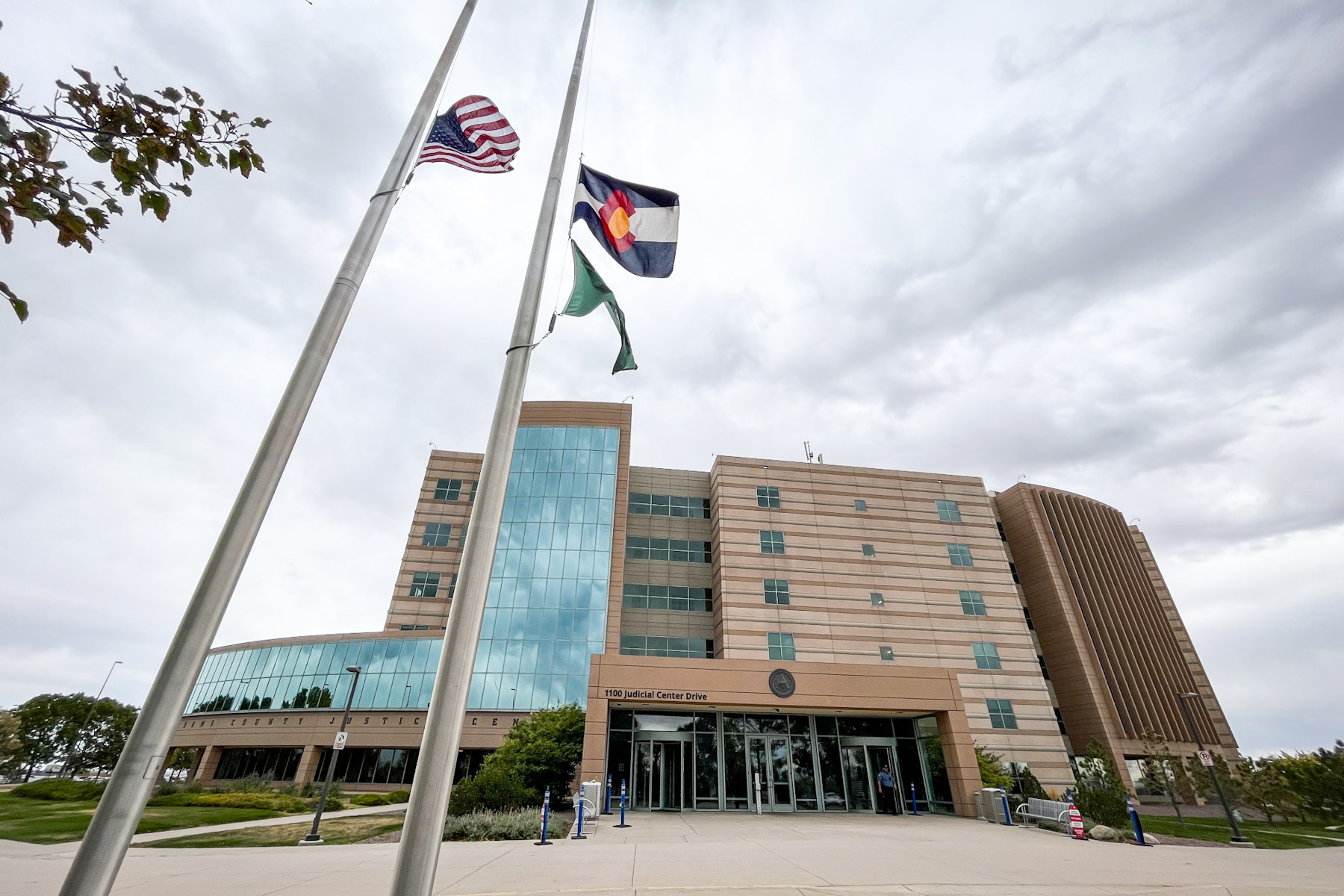
Rev. Spencer Booker said not a week goes by that he doesn’t talk about his brother Marvin, who died in a Denver jail as deputies tried to subdue him in 2010.
“About his laughter, his joy, about his prolific speaking,” Booker said. “Marvin was very intellectual, a great writer, and he just knew how to keep the family going. He always stayed in contact with us.”
Marvin Booker was killed in 2010 in a downtown Denver jail when five deputies restrained him, using a Taser and handcuffs and a carotid hold. It happened in a jail, not along a street, and ketamine was never used, but the overwhelming use of force on an unarmed man and broad circumstances were similar to what would happen almost 10 years later to 23-year-old Elijah McClain when confronted by Aurora Police.
The biggest difference: Officers in McClain’s case stood trial for his death.
Regardless of the split verdict in the case in which one officer was convicted of criminally negligent homicide and assault while the other was found not guilty of all counts, the very fact that officers were facing charges at all was comforting to the families of others who lost relatives in confrontations with authorities.
“I think that for those officers that took the life of Elijah McClain to be facing criminal charges is absolutely on point,” said Booker, speaking in advance of the verdict in the case. His family was awarded a $6 million civil settlement paid by Denver for Marvin’s death. But that’s not justice, said Booker. “No, it never was. It never was enough. Never. You can't buy my brother's life. He's worth more than that to us.”
The Denver deputies were not charged with any criminal wrongdoing by the then-District Attorney Mitch Morrissey.
“They killed my brother behind the badge,” said Marshall. “We won in a civil court and we tried to open up a criminal proceedings against them because we found that they literally murdered my brother without a reasonable doubt. I mean, they killed my brother.”
Once rare, jury trials seem to have become increasingly common in Colorado for police officers accused of misconduct on duty. And many connect the change to the 2020 killing of George Floyd by Minneapolis Police officers led to nationwide protests that influenced new laws and norms across the country and in Colorado, eroding some of the criminal immunity for police and sheriffs involved in violent incidents.
While the state doesn’t keep track of officers who’ve lost their jobs after conviction for crimes while on duty, there are several recent high-profile cases.
In 2021, two Aurora police officers were arrested after a use of force incident against an Army veteran, Kyle Vinson, who is Black. One of the officers, Francine Ann Martinez was convicted in April of failure to intervene in the assault. That charge was brought, thanks to a state law that passed in 2020 following George Floyd’s death.
The other officer, John Raymond Haubert, still faces felony charges of assault and menacing. A jury trial is scheduled for Spring of next year.
In 2022, a Loveland Police officer pleaded guilty to failing to intervene when another officer injured a 73-year-old white woman with dementia during a 2020 incident. The officer who assaulted the woman, whose arm was broken, pleaded guilty, and was sentenced to five years in prison. He’s currently at the Arkansas Valley Correctional Facility.
This shift is the product of a change forced by the public, said David Lane, a longtime civil rights attorney in Denver.
“The public has become aware,” said Lane. “Police brutality has not changed in a hundred years. The only thing that's changed is public awareness of it.”
But Morrissey rejected that premise. Political or cultural climate, he said, doesn’t change the requirement that prosecutors look at the facts and decide if they can prove a crime.
He said as a DA he charged up to 15 officers for everything from drunk driving to rape.
“That's all you're doing when you bring charges is following the law. You shouldn't be out to get someone because of their profession,” said Morrissey. “[If police] commit crimes and if you can prove it, and they don't have a defense like self-defense or defense of others you bring those charges.”
Take the Marvin Booker case, for instance, “Now I looked at that, I looked at it as closely as I could,” said Morrissey, who declined to bring charges against the deputies after he said he conducted a thorough review, and he said he would have made the same decision today based on the evidence. “I don't think you should prosecute the cases based on climate.”
There are, however, several law and policy changes in recent years that have aided police accountability, including body cameras and broadening the types of investigations of officers.
Post-George Floyd, the Colorado legislature has mandated that all police departments use body cams. Before that, police incidents not caught on camera were harder to prosecute.
“We have all this digital media including body-worn camera video, that has completely changed how we present criminal cases,” said Boulder County District Attorney Michael Dougherty. “Although I have to add the caveat of body-worn camera video is only as good as what the camera is capturing.”
Two years ago Dougherty’s office prosecuted two Boulder County sheriff’s deputies after a 23-year-old intoxicated man died in a sheriff’s transport van on the way to detox. Demetrius Shankling suffocated when he was squeezed into a small compartment in the van. One deputy, James O’Brien, was sentenced to six years in prison — he’s eligible for parole in two months. The other, Adam Lunn, was sentenced to three years and is on parole.
Dougherty said Colorado law changed in a small but important way in 2021, when Colorado legislators broadened the scope of on-duty conduct subject to large multi-agency investigations. Previously those types of investigations were only required for officer-involved shootings, but House Bill 21-1250 changed that to include other, non-firearm-related uses of force that resulted in death.
Despite these changes, there are families in Colorado whose loved ones died during confrontations with police in the past that may never see the officers involved face a jury.
“It's been years and it hurts. It still hurts,” said Natalia Marshall, who’s uncle Michael Marshall died in a Denver jail in 2015. Michael, who suffered from schizophrenia, aspirated on his own vomit while being restrained by Sheriff’s deputies. The city eventually paid out a settlement, but the deputies were never charged. “It sucks. Sucks to see everybody else get justice, but my uncle's still dead. He's still gone. And they say, ‘well, at least you guys got to settlement.’ That sh— will never bring him back. Like never ever.”
In Marvin Booker’s case, pressure from the family led to a grand jury investigation eight years after his death, not into the death itself, but instead looking into allegations of obstruction and evidence tampering. The grand jury concluded their review in 2018 without any new charges.
Marvin Booker’s brother Spencer believes that lack of accountability helped to set a deadly precedent that connects all the way to McClain’s death.
“And the reason why they're so comfortable with killing Black men is because 10 years ago almost they were able to walk away from killing Marvin Lewis Booker,” said Spencer. “And they feel that if ‘we got away with this one, that one with Marvin, we'll get away with the rest of them.’”
Spencer and his family see the trial for the officers involved in McClain’s death as progress. “And hopefully it'll send a new signal to other officers that you cannot use your badge to abuse and murder citizens,” said Spencer.








